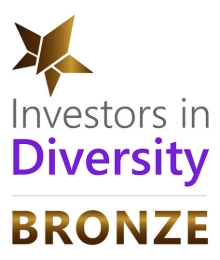Making all skills visible: the validation of transversal skills
How would you assess your own problem-solving skills? Or your time-management skills? The Transversal Competence Framework can help learners map these and other competencies with specific descriptions for each of the different EQF levels.
These skills are often listed in job applications but how do we make them visible? Colleagues from several EU member states convened in Stockholm to hear about and discuss the results of the Transval-EU project.
It was acknowledged that the term "transversal skills" can be problematic - perhaps even more so when translated from English - but transversal skills typically have high transferability across different jobs and sectors. Despite the importance of these transversal skills, in his keynote speech, Michele Tuccio from the OECD noted that when it comes to developing policy, it shouldn’t just focus on the young, and subject-oriented training is not enough - it needs real-life, practical environments to flourish. Further, many adults already have a wealth of transversal skills acquired during their lifetime - they don’t necessarily need new training. This ties in with the recent OECD skills report for Ireland.
In the context of the Programme for Government, ‘Our Shared Future’ which sets an ambitious target for the realisation of systematic opportunities for RPL in the context of FET and Community Education; this is further developed in the FET Strategy which acknowledges the achievements to date in providing certification opportunities through RPL within the sector. In higher education, following significant investment through the RPL in HE project, and the establishment of RPL leads in each publicly funded Institution, visibility, capacity and appetite is also growing systematically within a common framework.
The discussion group that QQI participated in on day two of the conference posed the question: ‘what needs to be done at different policy levels: regional, national and European?’ Challenges and obstacles include
- Achieving clear political will and long-term high-level commitment across party lines;
- Involving a broad range of relevant actors with different interests, priorities, beliefs or ideologies;
- Aligning initiatives across different policy areas;
- Linking together a range of interventions (e.g. career guidance) adds complexity;
- Potential resistance due to interference with existing regulations
However, Karin Luomi-Messerer, the group facilitator, noted the fact that Ireland already has a published integrated national skills strategy document demonstrated that it can be done.


